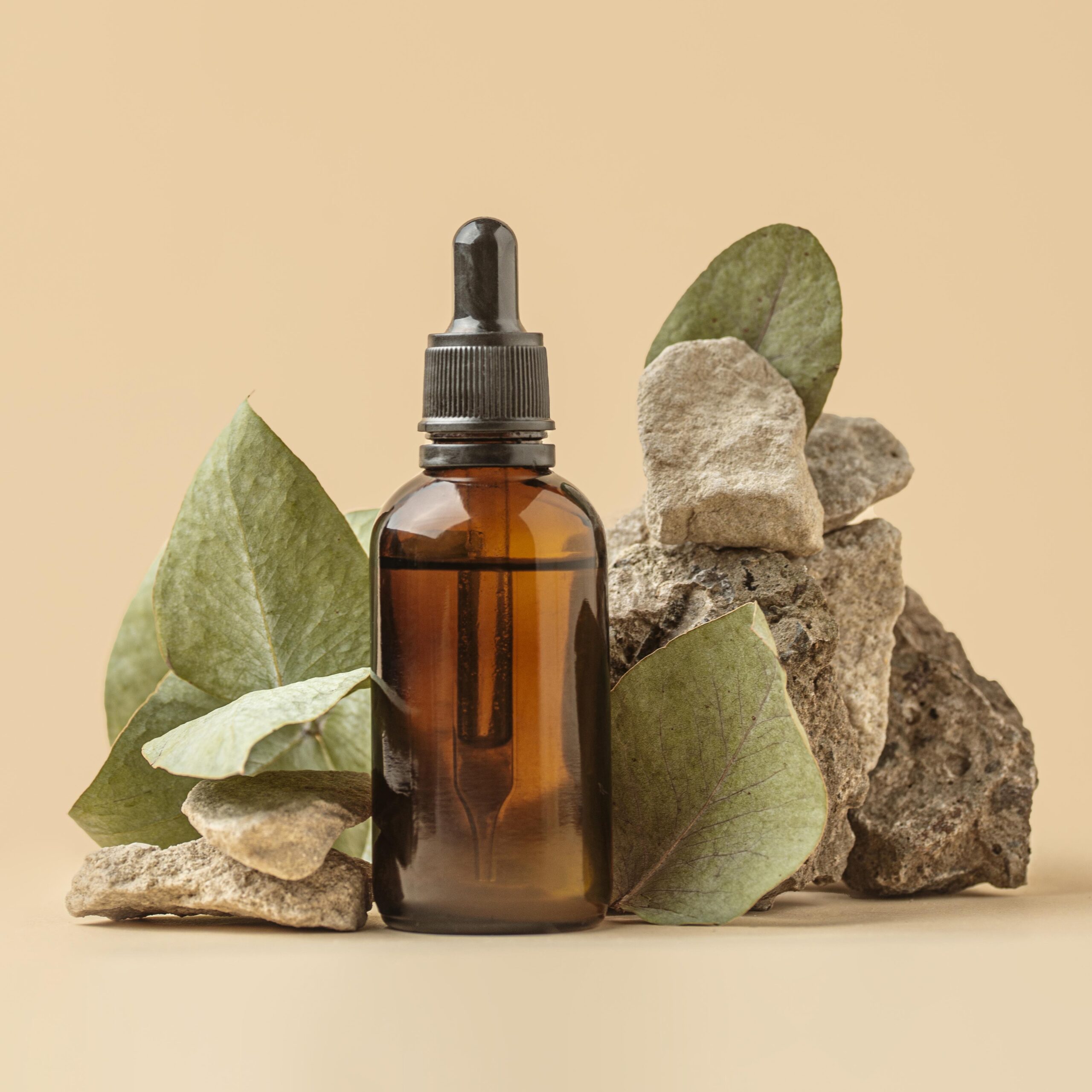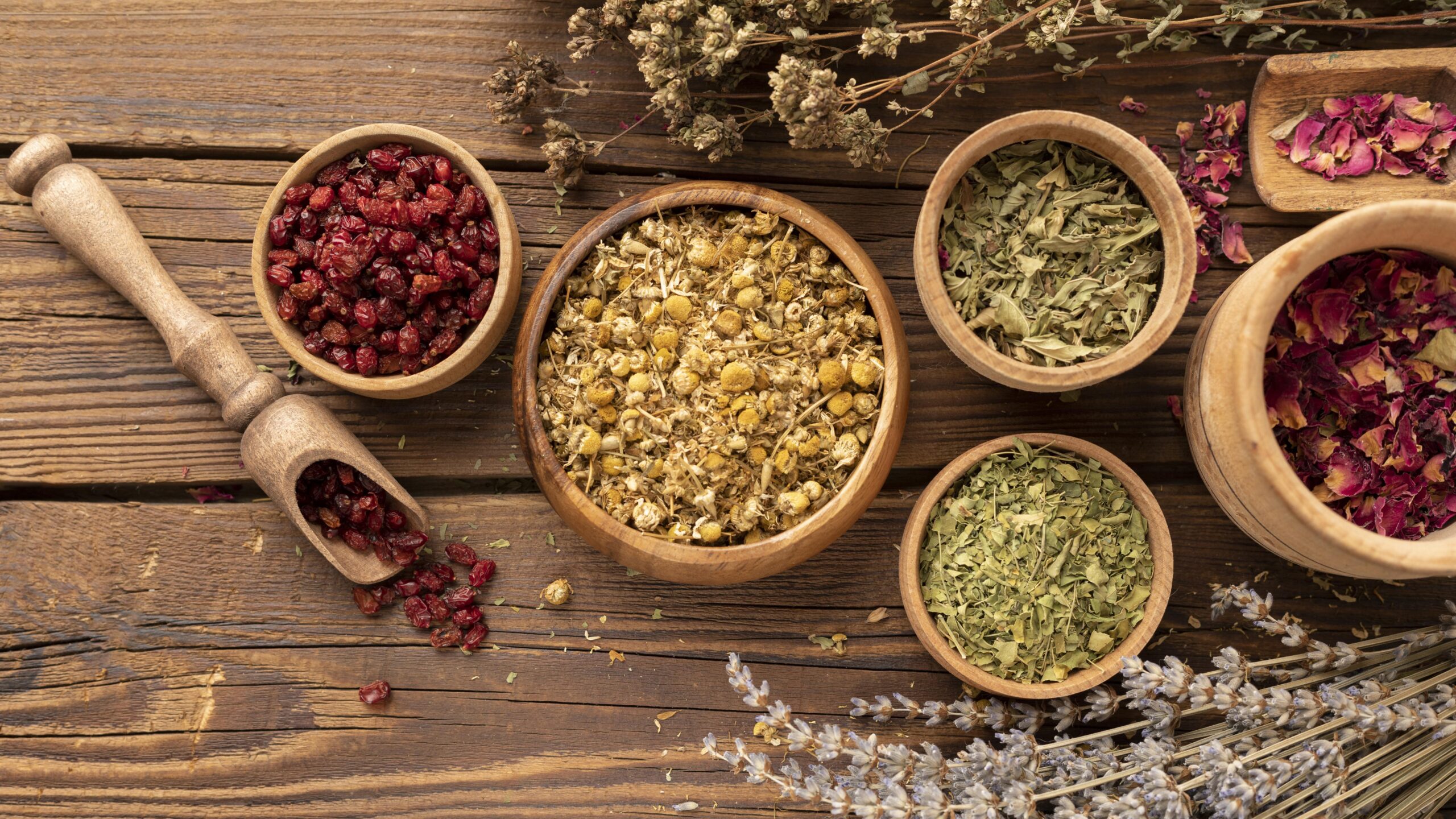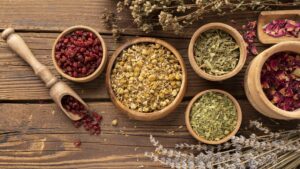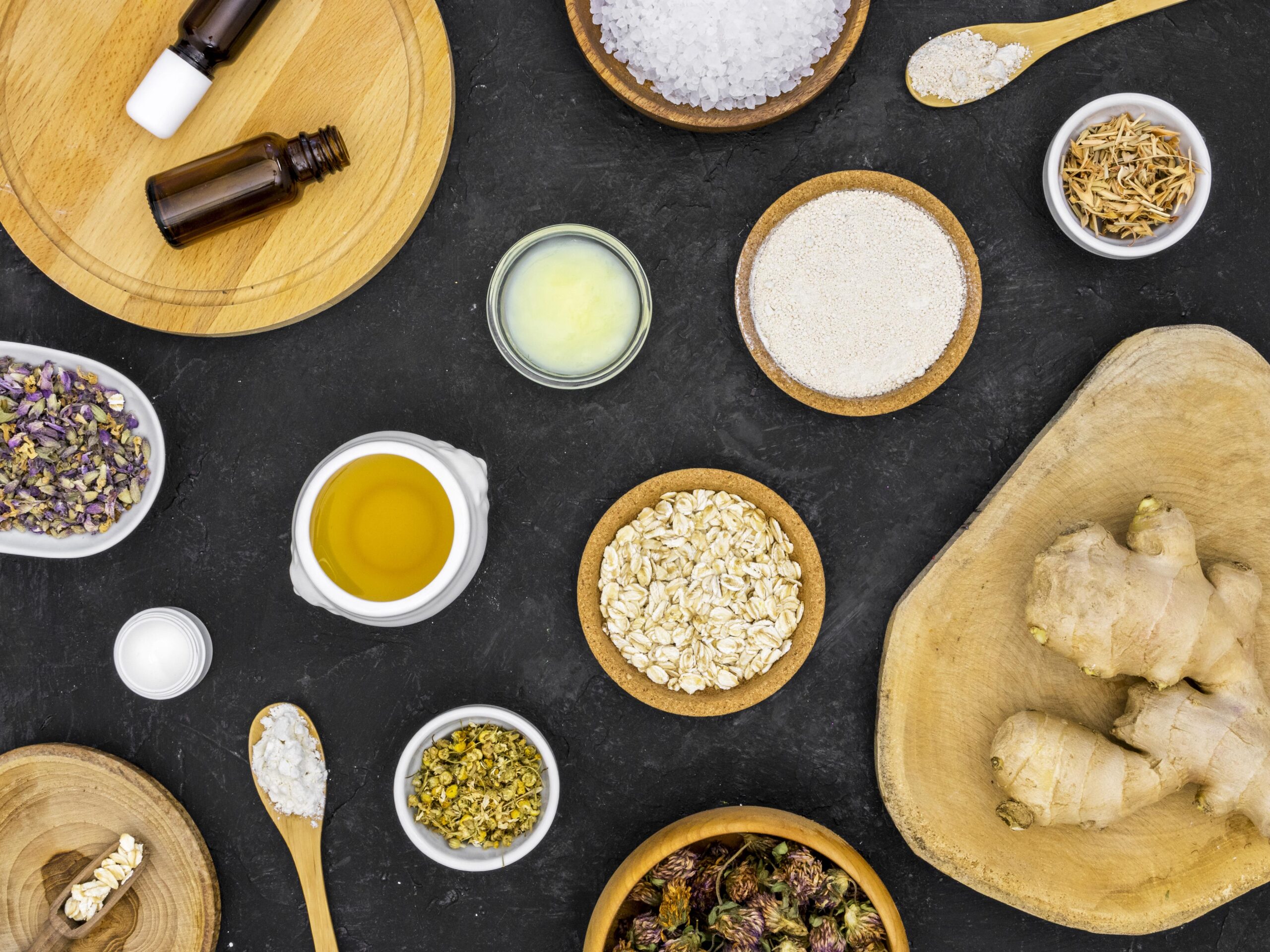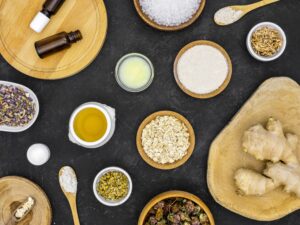Unleash Your Hair’s Natural Beauty with Herbal Hair Oil: The Ultimate Guide to Healthy, Lustrous Locks
INTRODUCTION:
In the pursuit of gorgeous, vibrant hair, many individuals turn to an array of haircare products, from shampoos and conditioners to serums and masks. However, amidst this vast sea of options, one timeless solution stands out for its simplicity and effectiveness: herbal hair oil. Harnessing the power of nature’s botanicals, herbal hair oil offers a holistic approach to haircare, nourishing the scalp, strengthening the strands, and promoting healthy growth. In this comprehensive guide, we’ll delve into the benefits of herbal hair oil, explore key ingredients, and provide tips for incorporating it into your haircare routine.
DISCLAIMER: The information provided in this blog is for educational and informational purposes only and is not intended as medical advice. The content is not intended to diagnose, treat, cure, or prevent any disease. Readers are advised to consult with a qualified healthcare professional regarding their specific health concerns and before starting any herbal remedies or health regimen. While every effort has been made to ensure the accuracy and completeness of the information presented, the author and publisher assume no responsibility for any errors or omissions. The use of herbal remedies and traditional medicine should be undertaken with caution and under the guidance of a qualified healthcare practitioner, especially for individuals with pre-existing medical conditions or those taking medications. The inclusion of specific herbs or formulations in this blog does not imply endorsement or recommendation. Individual responses to herbal remedies may vary, and it is important to consider individual health needs and sensitivities. Always read product labels and instructions carefully before use. By accessing and using this blog, readers acknowledge and agree to the terms of this disclaimer and release the author and publisher from any liability arising from the use or misuse of the information provided.
THE POWER OF HERBAL HAIR OIL:
Herbal hair oil has been revered for centuries in various cultures for its ability to rejuvenate and beautify the hair. Unlike conventional hair products laden with chemicals, herbal hair oil is formulated with natural ingredients derived from plants, herbs, and botanical extracts. These ingredients are carefully selected for their potent nourishing, moisturizing, and strengthening properties, making herbal hair oil a favorite among those seeking healthier, more resilient hair.
BENEFITS OF HERBAL HAIR OIL:
- Nourishes the Scalp: Herbal hair oil penetrates deep into the scalp, delivering essential nutrients and vitamins that promote scalp health. By nourishing the scalp, herbal hair oil helps alleviate dryness, flakiness, and itchiness, creating an optimal environment for healthy hair growth.
- Strengthens the Hair: Regular application of herbal hair oil helps strengthen the hair shaft, reducing breakage and split ends. The rich blend of botanicals in herbal hair oil coats the hair, providing protection from environmental damage and heat styling.
- Promotes Hair Growth: Certain herbs and botanicals in herbal hair oil have been traditionally used to stimulate hair follicles and promote hair growth. Ingredients such as amla, bhringraj, and brahmi are known for their hair-strengthening and growth-promoting properties.
- Improves Hair Texture: Herbal hair oil helps improve the overall texture and appearance of the hair, leaving it soft, smooth, and shiny. The natural oils in herbal hair oil moisturize the hair, preventing dryness and frizz.
- Reduces Hair Fall: By nourishing the scalp and strengthening the hair follicles, herbal hair oil can help reduce hair fall and hair loss. Regular massage with herbal hair oil improves blood circulation to the scalp, which is essential for healthy hair growth.
Key Ingredients in Herbal Hair Oil:
- Amla (Indian Gooseberry): Rich in vitamin C and antioxidants, amla nourishes the scalp, strengthens the hair follicles, and promotes hair growth.
- Bhringraj (Eclipta Alba): Known as the “king of herbs” for hair, bhringraj stimulates hair growth, reduces hair fall, and prevents premature graying.
- Brahmi (Bacopa Monnieri): This herb nourishes the hair follicles, improves hair texture, and promotes hair growth.
- Coconut Oil: A deeply moisturizing oil, coconut oil penetrates the hair shaft, hydrating and strengthening the hair from within.
- Almond Oil: Rich in vitamins and minerals, almond oil nourishes the scalp, reduces dandruff, and adds shine to the hair.
- Jojoba Oil: Similar in structure to the natural oils produced by the scalp, jojoba oil moisturizes the hair without weighing it down, leaving it soft and manageable.
INCORPORATING HERBAL HAIR OIL INTO YOUR HAIRCARE ROUTINE:
- Choose the Right Herbal Hair Oil: Look for a herbal hair oil that suits your hair type and concerns. Whether you have dry, damaged hair or oily scalp, there’s a herbal hair oil formulation tailored to your needs.
- Massage into the Scalp: Take a small amount of herbal hair oil and gently massage it into your scalp using your fingertips. Massaging the scalp helps improve blood circulation, promotes relaxation, and enhances the absorption of nutrients.
- Distribute through the Length of the Hair: After massaging the scalp, distribute the remaining herbal hair oil through the length of your hair, focusing on the ends. This helps moisturize and nourish the hair shaft, preventing dryness and split ends.
- Leave on Overnight or as a Pre-Shampoo Treatment: For intensive nourishment, leave the herbal hair oil on overnight and wash it off in the morning. Alternatively, you can use it as a pre-shampoo treatment by applying it to the hair before shampooing.
- Use Regularly for Best Results: Consistency is key when it comes to herbal hair oil. For best results, incorporate it into your haircare routine 2-3 times a week or as needed.
CONCLUSION:
Herbal hair oil is a timeless beauty secret that has stood the test of time. With its natural ingredients and myriad benefits, herbal hair oil offers a holistic approach to haircare, nourishing the scalp, strengthening the strands, and promoting healthy, lustrous locks. Whether you’re looking to improve hair texture, reduce hair fall, or stimulate hair growth, herbal hair oil is a versatile solution that can transform your hair from dull and lifeless to vibrant and beautiful. Embrace the power of nature and unleash your hair’s natural beauty with herbal hair oil.
for controlling extreme hair fall use JUVEE HAIR OIL..


